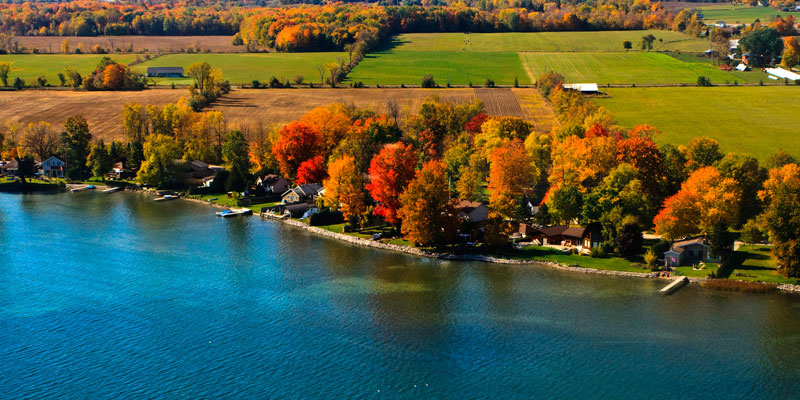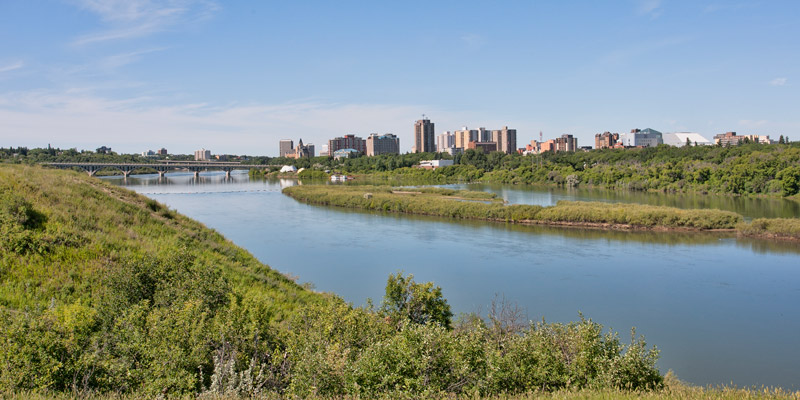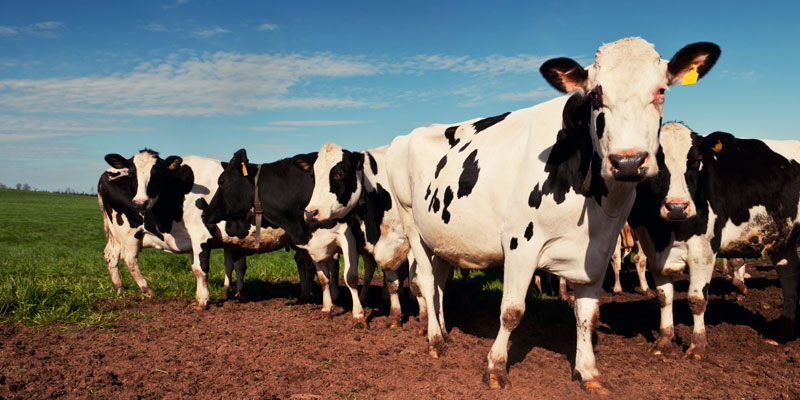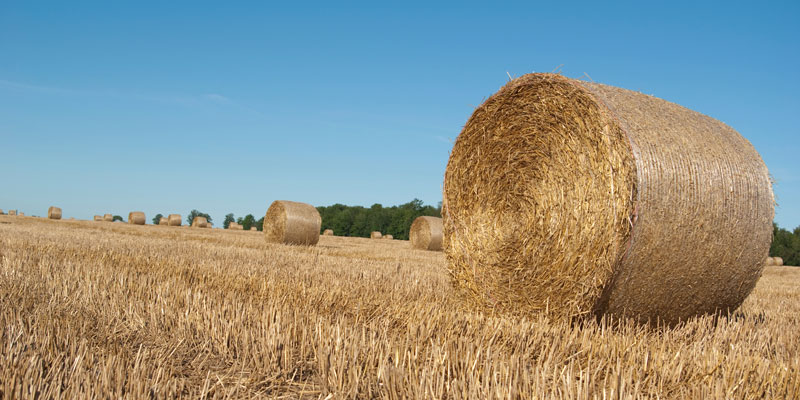Influence of Dynamic Hydrology on Groundwater Source Security
Principal Investigator - David Rudolph, Professor, University of Waterloo, 2012 - 2014

Challenge
The ability to protect groundwater from contamination hinges on better assessments of aquifer and well vulnerability. These are aspects of groundwater supplies that are determined by physical characteristics of the subsurface and annual precipitation patterns. In Canada, seasonal change causes enormous variability in groundwater recharge, conditions that are exacerbated by extreme water events. The Walkerton tragedy, Canada’s most infamous case of the effect of extreme precipitation on groundwater quality, occurred after a five-day rainstorm had washed a deadly strain of E. coli in cow manure into the town’s water supply, causing 2,300 illnesses and seven deaths.
Rural environments are the most challenging to manage, as diffuse sources of chemical and microbial contaminants from agricultural lands have considerable potential to affect municipal drinking water supply systems. In response, provincial policy-makers and municipal water suppliers are examining and enhancing groundwater source protection strategies as well as methods to measure groundwater quality across Canada.
The project, led by Dr. David L. Rudolph, aims to advance understanding in three key aspects of groundwater source protection vital to ensuring sustainable and safe water supply systems — (1) assessment of aquifer and well vulnerability, (2) assessment of beneficial management practices designed to preserve water quality, specifically in agricultural settings, and (3) economic evaluation of scenarios available to municipal authorities charged with managing water resources.
Project
The project has four main components: field data collection and field experimentation, development of monitoring methods, numerical analysis and modelling of data, and economic scenario evaluation.
Research activities involve extensive monitoring and in-field experiments at five well-established study sites across Canada where agricultural land use has caused water quality degradation of both aquifers and wells —
- Thornton Well Field, Oxford County, Ontario
- Abbotsford-Sumas Aquifer Complex, Abbotsford, British Columbia
- Mannheim Well Field, Regional Municipality of Waterloo, Ontario
- Battersea Drain Area, Lethbridge, Alberta
- Sheep River Alluvial Aquifer, Okotoks, Alberta
At these field sites researchers are assessing the performance of beneficial management practices designed to minimize water quality degradation on agricultural lands with livestock and regional cropping, and on quantifying the risk to groundwater under the direct influence of surface water sources. Nutrients and microbial pathogens (bacteria and viruses) typically found in agricultural environments are the contaminants being investigated.
Advanced field instrumentation and data collection will be combined with the interpretive and predictive power of new modelling tools to inform source protection authorities across Canada on groundwater source protection and risk assessment guidelines and policies, taking into account the local dynamic hydrologic factors at each site.
Outputs
- Development of improved management and monitoring strategies, and identification of methods to minimize the impact of agricultural practices on the quality and safety of municipal water supplies
- Various meetings were attended that were relevant to the research program including the:
- 2012 Annual Meetings of the Canadian Water Resources Association held in Banff, Alberta, June 6-8, 2012
- The Government of Alberta’s Water Conversation Community Session, Calgary, Alberta, March 20, 2013
- “Linking Environment and Agriculture Research Network (LEARN)”, Second Annual Research Workshop, University of Alberta, Edmonton, Alberta, May 24-25, 2012
- Annual meeting of Sustainable Bedrock Water Supplies for Ontario Communities, University of Guelph, February 28 and March 1, 2013
- Abbotsford – Sumas Aquifer Groundwater Nitrate Science Forum II. “What have we learned since our 2007 forum?” Abbotsford City Hall, May 2, 2012
- This research has resulted in several publications:
- Olson, B.M., Kalischuk, A.R., and Tymensen, L.D. (eds.). 2013. Livestock Manure Impacts on Groundwater Quality in Alberta Project 2008 to 2015: 2008 to 2011 Progress Report. Alberta Agriculture and Rural Development, Lethbridge, Alberta, Canada. 370 pp.
- Water and Agriculture in Canada: Toward Sustainable Management of water resources. The expert panel on sustainable management of water in the agricultural landscapes of Canada
- Parkin, G., A.P. von Bertoldi, and A.J. McCoy. 2013. Effect of Tillage on Soil Water Content and Temperature Under FreezeThaw Conditions. Vadose Zone Journal. Vol. 12 No. 1
- Sousa, M, Jones, J. P, Frind, E. O. and Rudolph, D. L., 2012. A simple method to assess the role of the unsaturated zone in the travel time from ground surface to receptor, J. of Cont. Hydrology, in press
Additionally, research conducted through this project has been disseminated through classrooms. The modeled soil water budgets and field data collected throughout southern Ontario have been used in several undergraduate courses delivered at the University of Guelph. These data have enhanced student learning by exposing them to the challenges in interpreting these data for translating science into environmental policy development.
Outcomes
Anticipated outcomes include:
- Potential to advance Canada’s capacity to manage and mitigate the risk of chemical and microbial contaminants on groundwater supplies, especially where risk of contamination is related to increasing seasonal variability in groundwater recharge and extreme hydrological events.
- Researchers will determine the influence of dynamic hydrologic conditions on quantifying aquifer and well vulnerability, groundwater–surface water interactions and the performance of prescribed beneficial management practices in agricultural settings.
- Inform source protection authorities across Canada on groundwater source protection and risk assessment guidelines and policies.
- Changes in practice related to the development of improved management and monitoring strategies, and identification of methods to minimize the impact of agricultural practices on the quality and safety of municipal water supplies.
- The project seeks to directly influence methods for defining well-head protection zones, a key component of all source water protection. In addition, the project hopes to inform the next generation of source water protection strategies by incorporating the significance of local dynamic hydrology on the quality of aquifers and municipal water wells.




